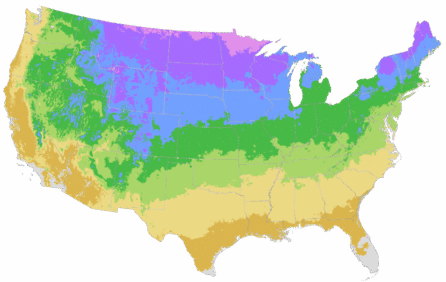You're growing in this Zip Code:
Change LocationBlue False Indigo
Baptisia australis
Retailers Near You
No Retailers found within 50 miles of your zipcode
Be Inspired: How to Use this Plant
| Bloom Time | Late spring to early summer |
|---|---|
| Deciduous/Evergreen | Herbaceous |
| Special Features | Attracts Butterflies, North American Native Selection, Waterwise |
| Problems/Solutions | Deer Resistant |
| Growth Rate | Moderate |
| Flower Attributes | Flowers for Cutting, Showy Flowers |
| Landscape Use | Border |
| Design Ideas | A big bushy plant to flesh out sparse border with rich blue flowers. Combines well with most American native species and blends well with grasses for meadow gardens. Grow as a cut flower. Particularly good massed for a large sea of delicious cool blue. |
| Flower Color | Blue |
| Foliage Color | Blue-green |
| Companion Plants | Forsythia (Forsythia); Bee Balm (Monarda); Lilac (Syringa); Eastern Snowball, (Viburnum); Salvia (Salvia) |
| Care Instructions | Follow a regular watering schedule during the first growing season to establish a deep, extensive root system. Feed with a general purpose fertilizer before new growth begins in spring. Prune old flower heads to encourage more blossoms. |
| Lore | Native Americans used this as a dye plant for blue coloring even though it was vastly inferior to the indigo of the tropics and trade. |
| Bloom Time | Late spring to early summer |
|---|---|
| Deciduous/Evergreen | Herbaceous |
| Special Features | Attracts Butterflies, North American Native Selection, Waterwise |
| Problems/Solutions | Deer Resistant |
| Growth Rate | Moderate |
| Flower Attributes | Flowers for Cutting, Showy Flowers |
| Landscape Use | Border |
|---|---|
| Design Ideas | A big bushy plant to flesh out sparse border with rich blue flowers. Combines well with most American native species and blends well with grasses for meadow gardens. Grow as a cut flower. Particularly good massed for a large sea of delicious cool blue. |
| Flower Color | Blue |
| Foliage Color | Blue-green |
| Companion Plants | Forsythia (Forsythia); Bee Balm (Monarda); Lilac (Syringa); Eastern Snowball, (Viburnum); Salvia (Salvia) |
| Care Instructions | Follow a regular watering schedule during the first growing season to establish a deep, extensive root system. Feed with a general purpose fertilizer before new growth begins in spring. Prune old flower heads to encourage more blossoms. |
|---|
| Lore | Native Americans used this as a dye plant for blue coloring even though it was vastly inferior to the indigo of the tropics and trade. |
|---|
Retailers Near You
No Retailers found within 50 miles of your zipcode
Retailers Near You
No Retailers found within 50 miles of your zipcode
Buy Online
This plant is not available to purchase online.
We no longer grow this plant. For replacement suggestions, check out the plants “You May Also Like” below.
About Us
We have been pioneers and craftsmen in the art of growing plants for nearly
100 years. Since our founding in Southern California by Harry E. Rosedale, Sr.
in 1926, we have been absolutely dedicated and obsessed with quality.
We have been pioneers and craftsmen in the art of growing plants for nearly 100 years. Since our founding in Southern California by Harry E. Rosedale, Sr. in 1926, we have been absolutely dedicated and obsessed with quality.




